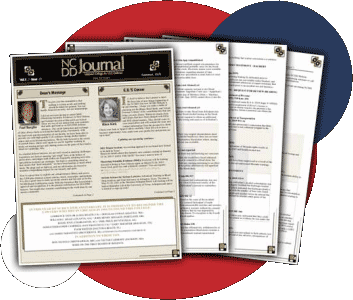- The ABA’s Concise Guide to Lawyer Specialty Certification
- Benefits to Become Board Certified - ABA Video
- Board Certified Members
- How to Become Board Certified in DUI Defense Law
- Apply for Certification
- Apply for Re-Certification Renewal
- Board Certified Senior Specialist
- Rules Governing Board Certification
- Preparing for the Exam
What Should I Know About Collateral Attacks?
Posted on April 19, 2022 in Uncategorized

By Teuta Jonuzi, Tracey Wood & Associates
In today's world with ever increasing penalties for drunk driving convictions, you have the option of attacking a prior conviction through your current drunk driving case. Every good drunk driving defense lawyer knows that collateral attacks are one of the best types of motions to raise in a case. As most people know, a person charged with a crime is entitled to counsel at every critical stage of the proceedings. A plea hearing is one such critical stage where the right to counsel applies. Iowa v. Tovar, 541 U.S. 77, 87 (2004). If a person chooses to represent himself in a criminal case and enters a plea, the court must give the defendant enough information to make sure the waiver of attorney is knowing, intelligent, and voluntary. Johnson v. Zerbst, 304 U.S. 458, 464 (1938). The right to counsel is guaranteed by the Sixth Amendment. The Sixth Amendment is satisfied at a plea hearing when the court discusses the nature of the charges, the right to an attorney for the hearing, and the potential penalties the person faces. A court must create a recording showing the waiver was valid. Carnley v. Cochran, 369 U.S. 506, 516 (1962).
A collateral attack is when a person challenges the use of the prior conviction in a current case. In order to qualify, the prior offense must have been one where the individual proceeded without an attorney at the plea hearing. Counsel then must establish either that there was no waiver of counsel or that the waiver was inadequate. The first step is often to prepare an affidavit by the defendant. In the affidavit, the defendant attests that he did not make a knowing, intelligent, and voluntary waiver of attorney. The defendant attests that the court failed to explain the role of the attorney properly and failed to fully inform him so he could make a clear-headed decision to proceed. The affidavit is necessary in most states to enable you to get through the door and have a hearing.
Usually the collateral attack hearing involves testimony by the individual, who must testify to facts establishing that the prior court did not do its job properly. In other words, the defendant testifies that he did not make a knowing, intelligent, or voluntary plea because he did not have full information about what an attorney could do. Sometimes there is a transcript of the prior hearing that helps the defense in making its case. In other cases, it will really depend on the defendant's testimony.
The individual testifying should be prepared to be cross examined by the government attorney. The process can be nerve-wracking, which is why it is important to hire an expert drunk driving attorney who will go through witness preparation with you. Your attorney will know what traps the prosecutor will try to lay.
At the end of the hearing, unless the judge asks for briefs to be submitted, the court makes a decision on the use of the prior offense in the current case. Remember, a collateral attack is not a way to vacate the prior conviction, but it is a way to hopefully block the prosecutor's use of the prior offense in charging you with the current offense. Good luck!
Find an Attorney
Enter your city, state, or Zip code below to locate a qualified attorney who has demonstrated a commitment to defend those accused of DUI and related crimes.








